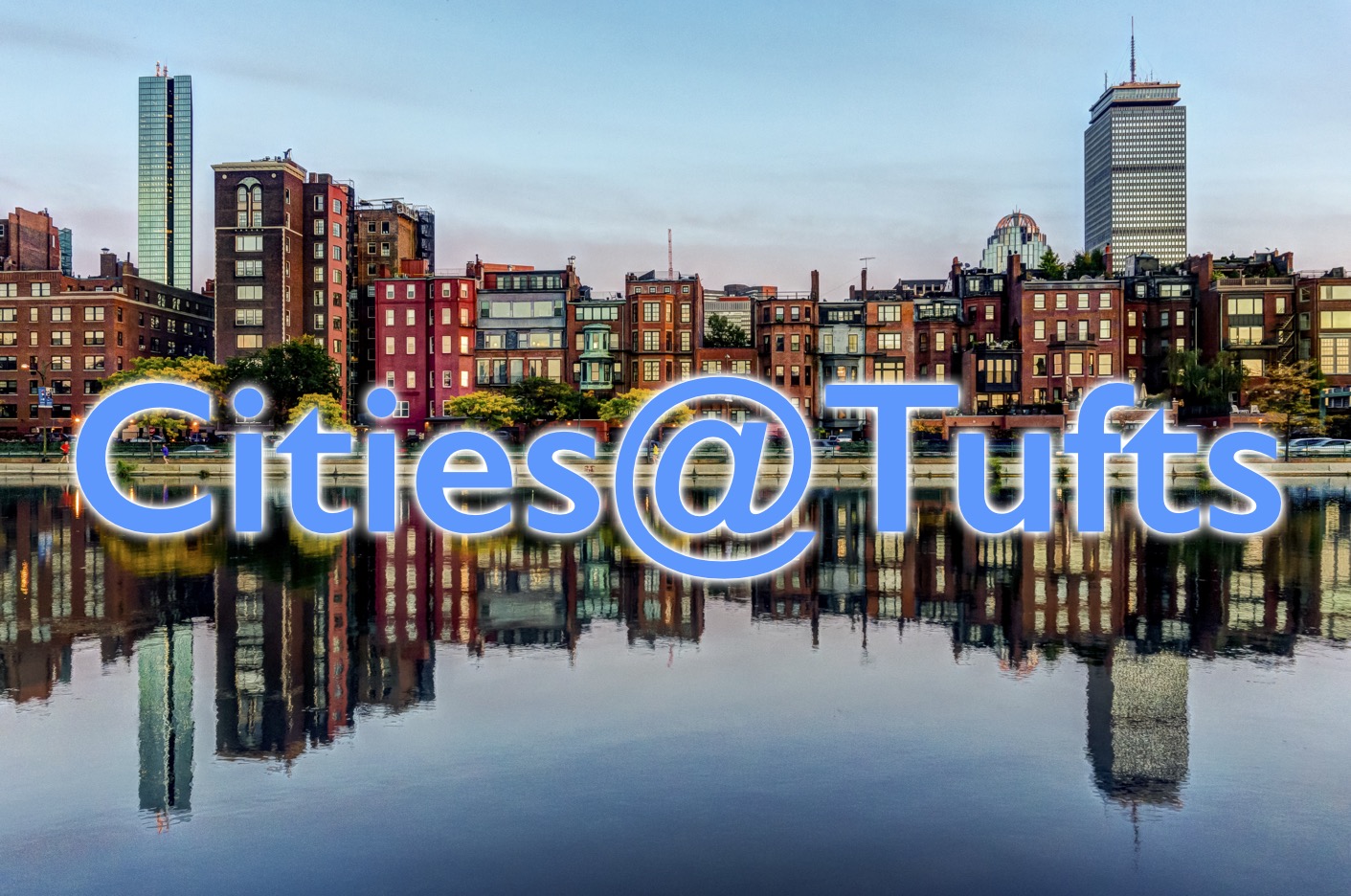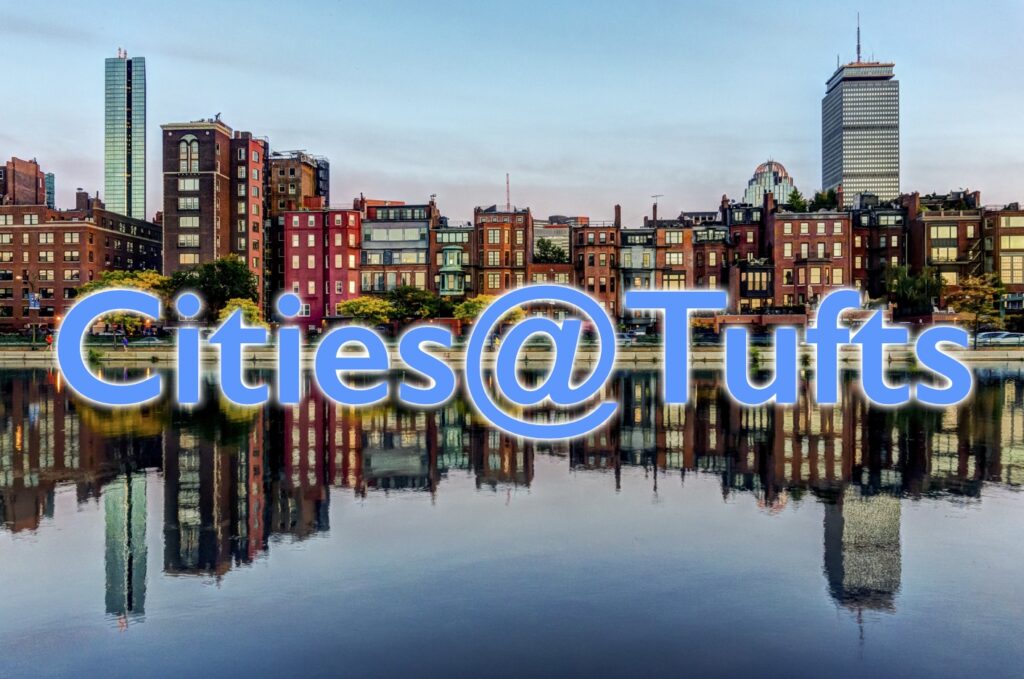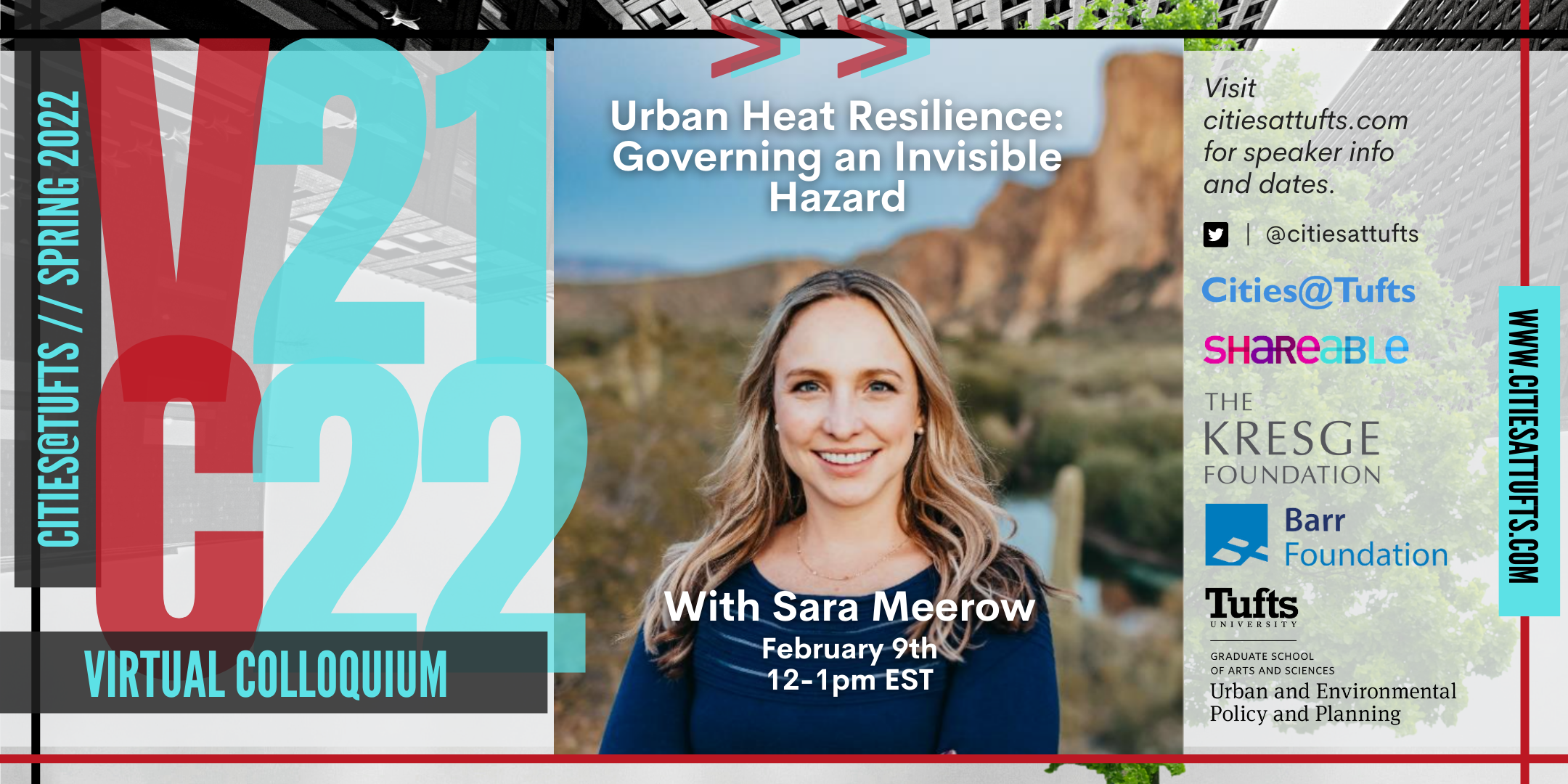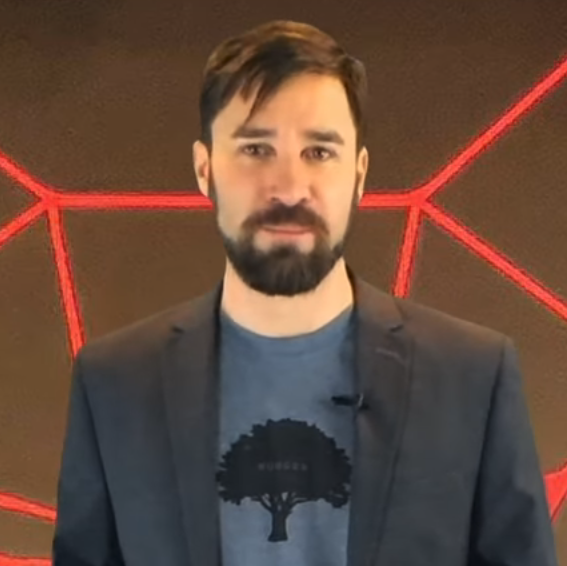Can a cooperative cities framework be used to address the unequal impact of automated traffic enforcement fines in Black & Brown communities? How can alternative land governance models help us respond to our climate challenge? Can “spatial games” operate as design tools, helping to broaden the conversation around socio-spatial imagination? These are just a few of the questions we’ll be exploring in the next season of the Cities@Tufts Virtual Colloquium.
Shareable is continuing its partnership with Tufts University’s Urban and Environmental Policy and Planning department on this free lecture series hosted by its interim chair, Professor Julian Agyeman (Julian is also the chair of Shareable’s governing board).
Lectures happen twice a month on Wednesdays from 12:00-1:00 p.m. EDT from February 9th through April 27th and feature a 30-minute presentation followed by a 30-minute discussion.
In order to increase the accessibility of this content, Shareable will publish transcripts, audio podcasts, and videos from each presentation. And you can register below to join live!
We’re grateful for the continued support from The Kresge Foundation, Barr Foundation, SHIFT Foundation, and contributions from Shareable readers like you to make this content free and available to all.
Learn more about events in the series below and catch up on all past Cities@Tufts recordings here.
Urban Heat Resilience: Governing an Invisible Hazard with Sara Meerow
February 9th | 12-1pm EST Extreme heat is the deadliest climate and weather-related hazard in the United States and cities are getting hotter because of climate change and the urban heat island effect. Communities everywhere need to proactively address inequitable heat risks, but compared with other more visible hazards like flooding, heat governance is underdeveloped. In this talk, Sara Meerow will synthesize the current state of extreme heat governance research and practice and outline a framework for urban heat resilience.

Collective Land Governance for a Changing Climate with Linda Shi
February 23rd | 12-1pm EST
How can alternative land governance models help us respond to our climate challenge? What role will collective governance play in our future?
Human civilization is headed towards a collision between rapidly changing conditions of land under climate change and static institutions governing land and property. Contemporary development models are predicated on Western European land ethics, property rights regimes, and land policies that evolved during a period of relative climatological and geological stability on Earth. Nevertheless, much as there are “varieties of capitalism”, a variety of land governance systems exist around the world. This talk shares examples of collective land governance that have enabled communities to adapt to economic and environmental shocks. It raises the possibility of expanding collective land ownership to respond to the climate challenge.
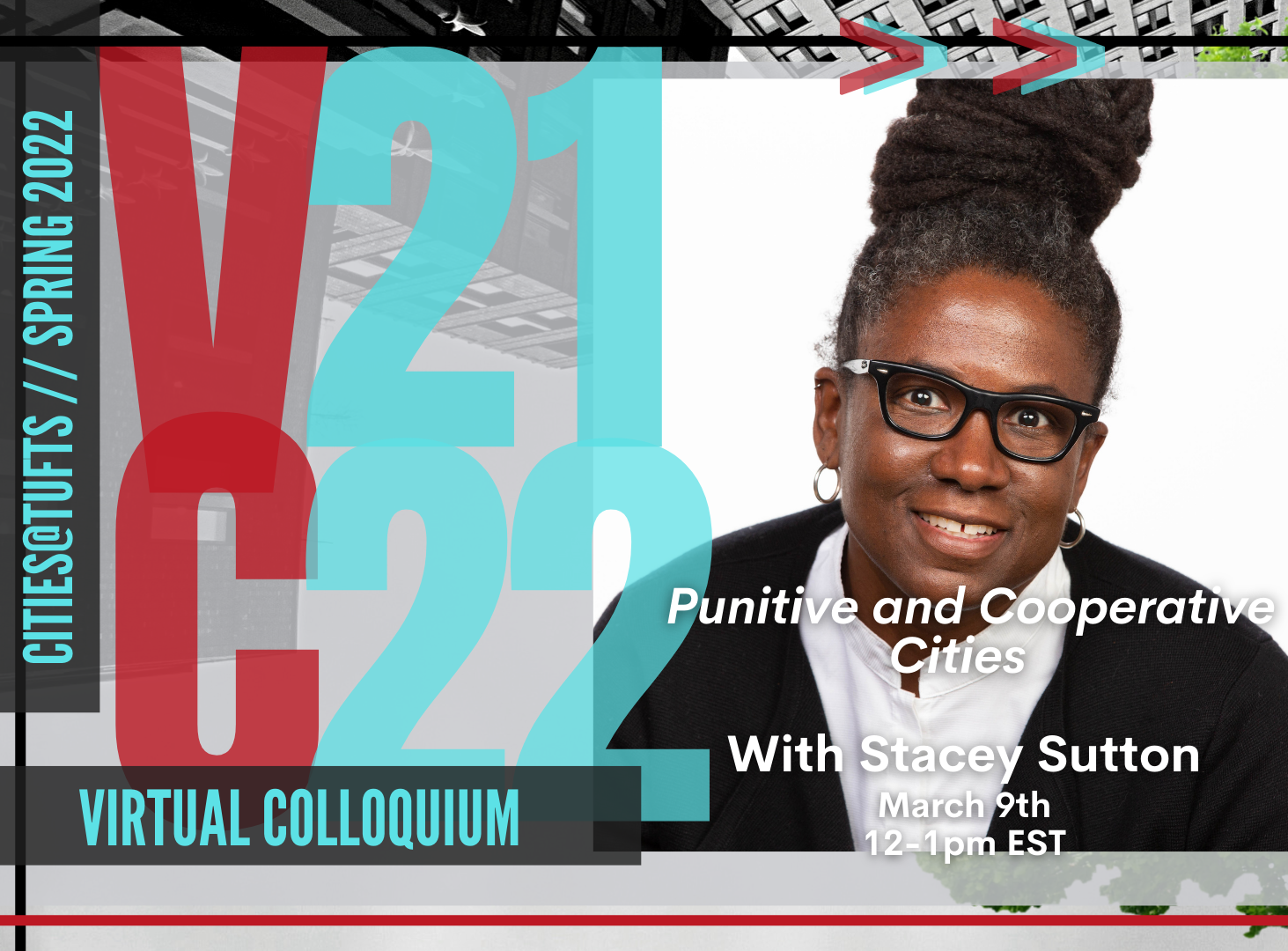
Punitive and Cooperative Cities with Stacey Sutton
March 9th | 12-1pm EST
Can a cooperative cities framework be used to address the unequal impact of automated traffic enforcement fines on Chicago’s Black & Brown communities?
The City of Chicago’s automated traffic enforcement fines and fees are disproportionately borne by Black, Latinx, and low-income residents. Simultaneously, Chicago is on the precipice of implementing one of the largest community wealth building initiatives in the country, defined by the city as “an approach to economic development that promotes the local, democratic, and shared ownership and control of community assets in order to transform our economy to be more sustainable and just.” I will discuss these distinctive areas of research in Chicago (and beyond) by drawing on my Punitive Cities and Cooperative Cities frameworks.
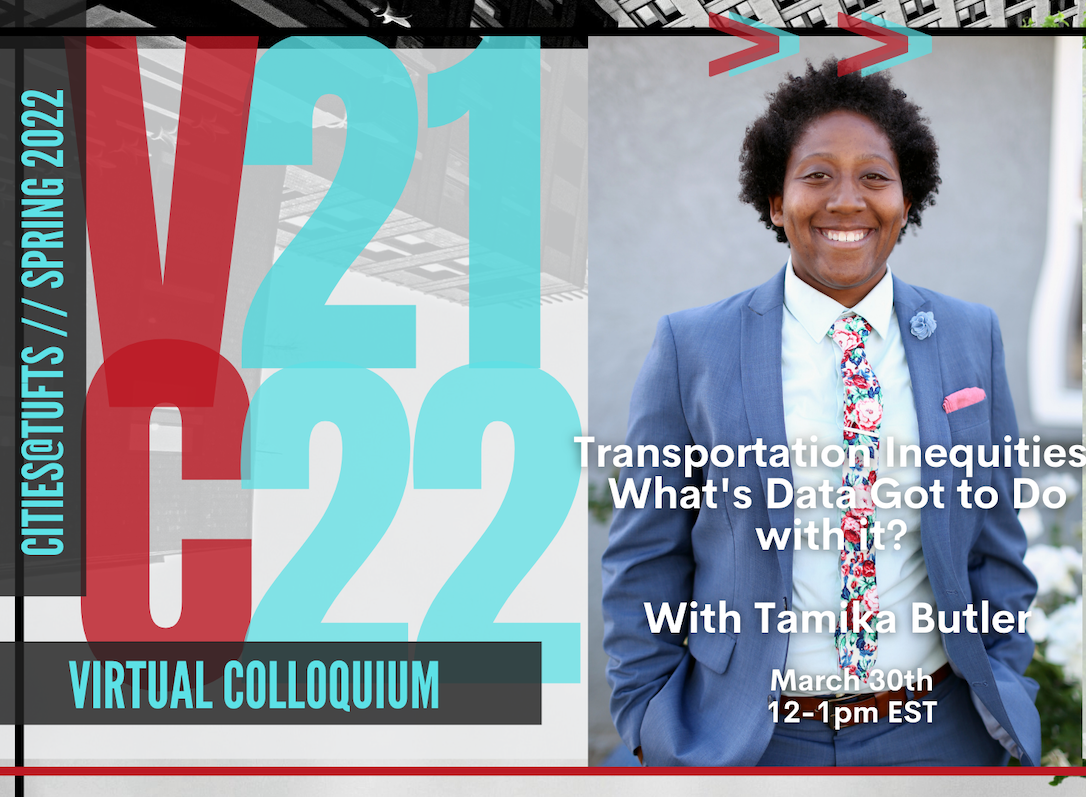
Transportation Inequities: What’s Data Got to Do with It? with Tamika Butler
March 30th | 12-1pm EST
How have data, policy and engagement contributed to widespread transportation inequities and what can we do to address these disparities?
Join national transportation expert, Tamika Butler, to talk about transportation inequities and how data exacerbates those inequities. Tamika will lead us through a conversation focused on the way that white supremacy and structural racism have shaped transportation and the built environment throughout the history of the United States. She will touch on the ways that engagement, data, and policy have added to these disparities and challenge us all to think about data differently.

The Energy Equity Project with Kyle Whyte and Justin Schott
April 20th | 12-1pm EST
Will Energy Equity Project’s equity measurement framework help bring clean energy programs (and investments) to front-line communities?
The Energy Equity Project is working to create a framework for measuring equity across energy efficiency and clean energy programs among utilities, state regulatory agencies, and other practitioners, while engaging and centering Black, Brown, and Indigenous communities and frontline communities. An equity measurement framework, set to launch in beta form in 2022, will serve environmental and climate justice advocates, practitioners, regulatory agencies, and utilities to drive more equitable investments and outcomes in energy efficiency, distributed generation, and storage (i.e. solar + batteries), demand response, electrification, and electric vehicle infrastructure. The presentation will offer an overview of EEP’s work, including the energy equity issues it addresses in urban contexts and an update on the framework being developed and the stakeholder engagement process.
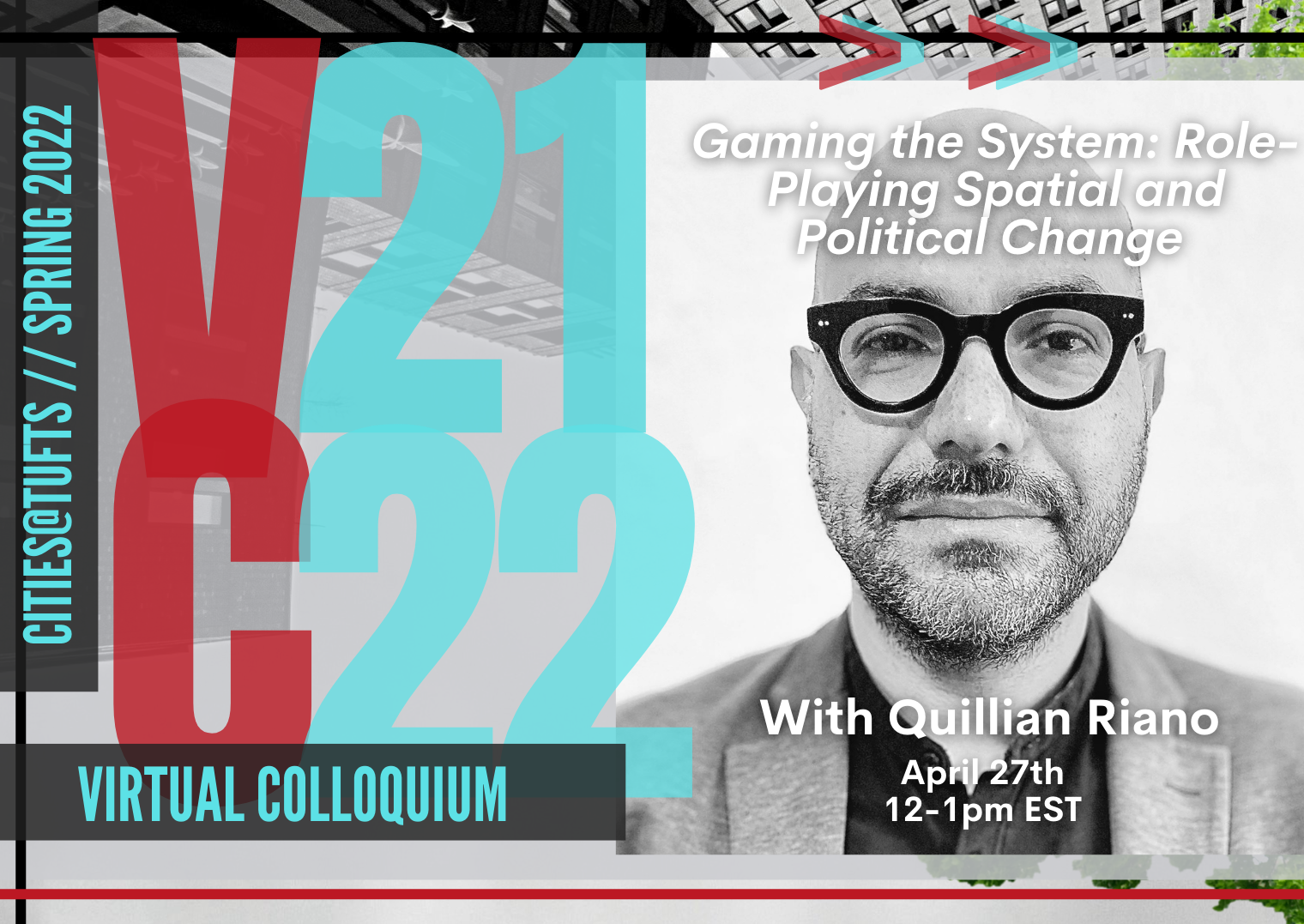
Gaming the System: Role-playing Spatial and Political Change with Quilian Riano
April 27th | 12-1pm EST
Can “spatial games” operate as design tools, helping to broaden the conversation around socio-spatial imagination?
A review of work that looks at how spatial games — defined as processes with loose rules for others to interpret and execute as they see fit — can become design tools to broaden the socio-spatial imagination and conversation.
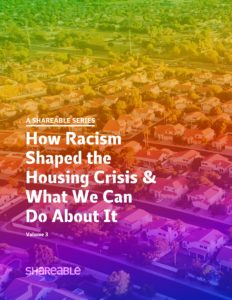 |
Download our free ebook: ”How Racism Shaped the Housing Crisis & What We Can Do About It” |
